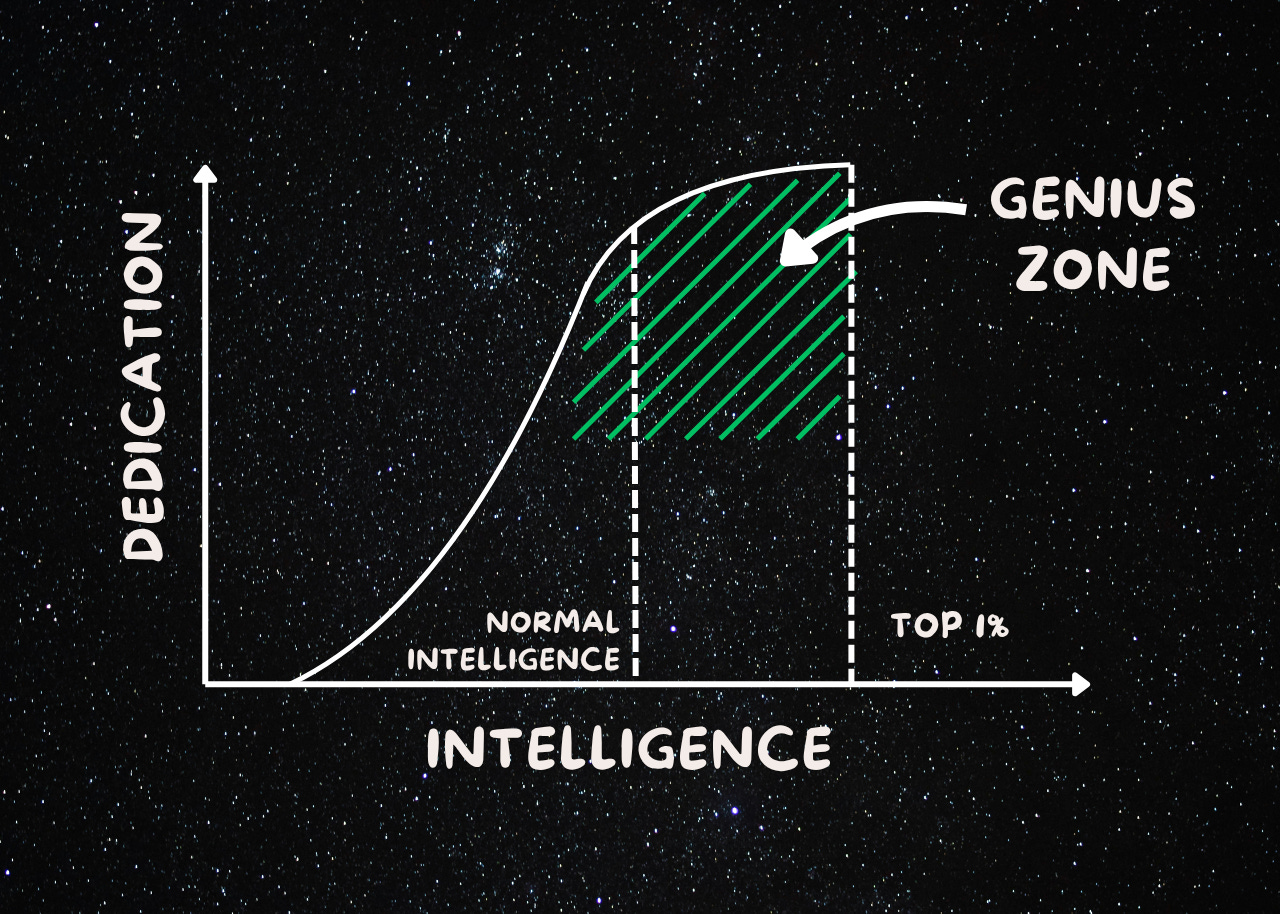Threshold Theory: Why intelligence does not predict success in life (and what does)
What the study of 1,500 “child prodigies” revealed about success
🏷️ Categories: Mental models, Deliberate practice, Learning.
We were made to believe that success was a matter of intelligence.
Since childhood, we were told that the best grades meant a better life, that the smartest ones would end up succeeding, and that talent was the passport to the future. But time has a curious and cruel way of revealing another truth: many of the brightest get lost along the way, while the seemingly mediocre end up building extraordinary lives.
Intelligence, in the end, isn’t the answer.
It’s only the starting point.
The “Termites” Experiment
In 1921, psychologist Lewis Terman set out to test a very human belief:
Do the most intelligent children really become the most successful adults?
He selected over 1,500 students in California with the highest IQs. He called them “The Termites” and followed them for decades. He measured their health, habits, education, and family life. It was the first major experiment to observe how “genius” grows and acts over time.
The result surprised everyone.
Not all the intelligent ones went far. Most lived normal lives. Some became respectable professionals, but none became an Einstein, a Picasso, or a Da Vinci. Many fell behind along the way.
Genius was no guarantee of anything.
That’s how the Threshold Theory was born — and with it, a lesson we keep forgetting.
The Threshold Theory
Beyond a certain IQ, having more stops mattering.
The threshold sits around an IQ of 120 — above average, but not exceptional. From that point on, the rest of success depends on something much more ordinary: deliberate practice, consistency, and attention to detail. In other words:
Practice every day.
Take your practice seriously.
Be meticulous even when no one’s watching.
You don’t need to be the smartest in the room — only the most dedicated to your craft.
Success doesn’t grow in proportion to intelligence.
In fact, there comes a point when the initial advantage that intelligence gives you is no longer enough to keep progressing. That’s when the most dedicated ones begin to gain an overwhelming edge.
The most widely read writer isn’t the one with the greatest expressiveness — it’s the one who never lets a week go by without publishing and keeps refining their voice. That’s how Asimov wrote over 500 works and became the great author of science fiction.
The most valued painter isn’t the one born with a gift — it’s the one who filled thousands of canvases until perfecting their technique. It doesn’t matter if they started with little skill. People call Picasso a genius, but it’s estimated he created about 20,000 works of art (McCully & Marilyn, 2025).
Behind every “genius,” there’s usually stubborn dedication to a passion.
And yes, the threshold exists — some shine effortlessly.
But what truly lies within our control, what really takes us far, is dedication.
The New Threshold
In 1921, the threshold was intelligence.
Today, in the 21st century, the threshold is attention.
Knowledge is no longer scarce — it’s infinite. We can learn anything from home, read any book, replicate any technique, and automate almost everything. But there’s one problem no one can solve for us: maintaining focus.
We live in an era where anyone can learn — but almost no one can concentrate. The new rarity isn’t being intelligent. It’s being attentive.
And that is the true advantage of the 21st century.
If you’re curious and love learning, you’re already within the threshold. You don’t need to know more before you start — that’s just the perfectionist’s most elegant excuse.
Start.
Make mistakes.
Try again.
The rest is practice, attention to detail, eagerness to learn, and passion for the craft.
We are facing the greatest opportunity of our era.
It’s up to you to seize it.
Want to go deeper? Here are 3 related ideas:
Walter Mischel’s Experiment: The quality that increases life success
The psychological technique that doubles your chances of reaching your goals
Lessons from Michael Jordan on success and deliberate practice
✍️ Your turn: What small daily practice could you commit to in order to cross your own “threshold”?
💭 Quote of the Day: “Practice isn’t what you do when you’re good. It’s what you do that makes you good.” — Malcolm Gladwell, Outliers
See you next time! 👋







The young need to hear this. The old need only look back on their lives. (And hopefully look forward, as well, with this as a reminder.)